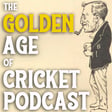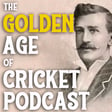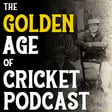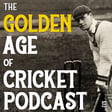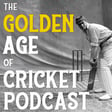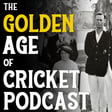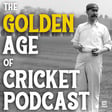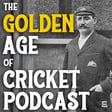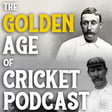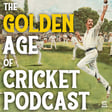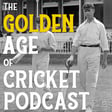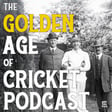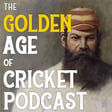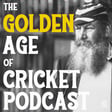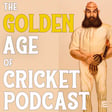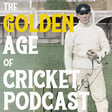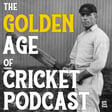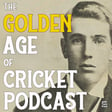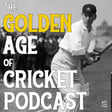Australian Cricket Team's Extensive Tour Overview
00:00:08
Speaker
So let's actually discuss the tour, Rick. um The Australians left shore in late January for the four-day a trip on the ship to Auckland.
00:00:21
Speaker
How many matches were scheduled and how tight was the itinerary? Okay. So um originally there was originally 15 matches, but that got amended to 16. They added a second gaming in Wellington.
00:00:35
Speaker
um This took place over the space of seven or eight weeks over February and March. So it was ah very tight trip. They were playing basically playing twice a week.
00:00:48
Speaker
That was what it came down to twice a week for but the whole period. So there's 16 matches and, um, There were eight first-class matches on the tour, which um the Australians won six and drew two.
Challenges of Travel and Scheduling
00:01:02
Speaker
So you'd get you know the first-class matches interspersed with matches against second-tier sides um but around the country, but or other eight matches. big games...
00:01:17
Speaker
fifteen sixteen s or eighteens in these other the other eight matches the big game Interesting, i didn't realize until right at the end, whatever happened, um Australia batted second.
00:01:32
Speaker
They never batted first. The point being was in these important first-class matches, the intention was that Australia would bat on the Saturday. yeah That was always the intention.
00:01:43
Speaker
The obvious reason, the biggest gate possible. when Australia batted. So it was a so slight strange twist. No matter what happened with the toss, yeah Australia were batting on the Saturday. That was and that actually happened, of course, with the with the famous Stan, the eighth-wicket Stan. Trumper was held back on the Friday after they bowled Canterbury out on them on the Friday. They held Trumper back, and he didn't bat until Saturday. so But it was a pretty arduous tour. I mean, the railway network in New Zealand was well you know was expanding, but there were still some pretty tough journeys by coach.
00:02:24
Speaker
um stagecoach, you know, with four horses pulling a stagecoach sort thing across quite difficult roads, which took considerable time, plus some, um you know, ferry and sea trips on top. So it was a bit reminiscent to some of those tours in the early, yeah in the 1880s and 90s that the England kings undertook around Australia, you know.
00:02:47
Speaker
um But there was a growing rail network that made a lot of the trips ah much more manageable. Your ah comparison is very
Leadership Dynamics: Sims vs. Noble
00:02:55
Speaker
apt. to mean, it's ah it makes the whole journey seem quite, not primitive, that's not the right word, but that they're just getting by and that they're having to rough it a little in parts. And then, that you know, it must have been an adventure for them as well, especially the younger players tour. Absolutely. to ah who hadn't yet done, say, a bigger tour to England. um so oh So, Rick, if we were to go chronologically through the tour, we'll just um pinpoint some of the more memorable matches. So the first match was against Auckland on the 6th of February, and the Australians won handsomely by an innings and 221 runs, ah with sentries to Armstrong, Ransford and Waddy.
00:03:39
Speaker
um now Despite the Australian team containing Armstrong and Monty Noble, two very senior players, the the team was captained by Arthur Sims, wasn't it? What can you tell us about that dynamic?
00:03:56
Speaker
Yeah, Arthur Sims um was captain of the side. Noble, obviously, could have been captain if he'd wanted to be, but he he wanted Sims to be captain of the side.
00:04:09
Speaker
He thought it was appropriate and ah that Sims should captain the side. And thats that's what happened. Although you know s Sims didn't play in every match and Noble would captain in the absence. And I'm sure if Sims wanted any advice, they were but you know Noble and Armstrong to to give him advice,
00:04:26
Speaker
I mean, there were times when Nobleman and Sims didn't play. There's one match where Trumper was captain, ah which is interesting because he was so shy and reluctant. he Obviously, at that point, because theyve every match had dinners and functions and events, you know, it was such a team was, you know, fated everywhere it went.
00:04:44
Speaker
Trumper had to actually make a speech on that occasion, which I'm sure he hated. But yeah. But yes, Simms was given the captaincy, but hed he'd captained Canterbury and New Zealand. So it wasn't that he wasn't capable. And on the contrary, he also, he was in, if you read his memoir, there's a biography of Arthur Simms, which has a few pages on his tour.
00:05:08
Speaker
ah He said, not noble, you know great great captain, fantastic man. But he liked to go to bed too late and get up too late. he was so the And Sims is quite funny with some comments. For some reason, he called Cody and Collins the blue ferret and the red ferret. No idea why. There were strange names that he called people. But the fact that noble stayed up too late and stayed in bed too late was...
00:05:35
Speaker
a comment Sims made about him, which maybe he felt maybe we'd better off if he, um, he was captured in the side as well. Um, that match in Auckland's for, because course Trump wasn't there and, um, neither was Crawford. And, um, that's the one match where Bill McCall, who was, uh, the assistant manager played, uh, batted number 11 and got a duck and bowled one or two overs. So they,
00:06:01
Speaker
the That was really the only time they were short. the they were short and oh But, you know, they won comfortably anyway. They did, yes. And innings and 221 runs. so as you ah just alluded, Trompa wasn't there and he arrives in time for the fourth match of the Tour.
Trumper's Initial Struggles and Redemption
00:06:20
Speaker
um which is at the Basin Reserve in Wellington. And this is where he makes his first appearance, which must have been a drawcard. ah What do we know about Trump's performance? How did he fare in his first outing on tour?
00:06:35
Speaker
I mean, it's hard to say that Trump was rusty, but he got a duck basically. Right. And in the first innings, Australia were bowled out for, in Australia's first innings, they were bowled out for 124. You know, they obviously went on to win the match, but ah Trump had got a duck in in the first innings and...
00:06:53
Speaker
was batting reasonably in the second and the crowd was enjoying it, but then he got out then much of the disband to the crowd. In Australia's first innings, they were bowled out by um ah spin attack of Jack Saunders' Clary Grimmett and e bowlla New Zealand bowler called Tom Southall who took five wickets.
00:07:14
Speaker
So that was quite an interesting situation, but he couldn't repeat it in the second in the second innings and Australia won quite easily. The crowd must have been very disappointed with the Trumper on that, you know.
00:07:26
Speaker
Oh, yes. ah Wellington on that occasion, for sure. Well, I mean, cricket's a lottery, isn't it? I mean, you know, you could see Trumper score duck or he could score 293. It's just, um you know, absolutely whatever day it is, you just have to...
00:07:41
Speaker
Hope for the best from a ah crowd perspective.
Cultural Encounters and Match Negotiations
00:07:44
Speaker
um Absolutely. So the sixth match of the tour, it's scheduled against, um I love this name, Poverty Bay in Gisborne. And it's an interesting match because of the negotiations which take place between the local team and Frank Laver, who's serving as this manager.
00:08:04
Speaker
um The locals wanted to field a team of 22 players, which is a real... throwback to sort of the 19th century yeah tours. um Just so, i mean, their reasoning rationale was so as many players as possible could benefit or learn from playing against the Australians. And Leiva said, no, no, we the best we could do is 18. And i think the haggling progressed and eventually they settled on 11 per side, traditional 11.
00:08:32
Speaker
um So what else can you tell us about this match against Poverty Bay, which I believe includes a humorous arrival of the Australian team in Gisborne? This is one of the matches where they they were...
00:08:46
Speaker
It was quite a long journey to get there, and they traveled overnight honor on an overnight ferry. The local the cricket association, like all the local cricket associations, were super keen to to meet the players as soon as possible and have a function.
00:09:03
Speaker
And so they you know get on the on the sheet ah ferry to greet the Australian players who are still in bed and you know forced to get up in their pajamas to to meet these and meet the local local cricket association later in the morning they had you know another function at the town hall but um the the match itself is interesting I think just from one other point of view and that is it's um the The captain of the local side is Len McMahon, who'd played for North Sydney for quite a number of years, and was on the fringe of the North Sydney first grade side, had played in the ah second grade and North Sydney side, won the pennant or whatever it was that they played for.
00:09:50
Speaker
um He got 87 not out and there was clamorings for him to be included in the test inverted commas side, which didn't happen in the first test, it did in the second.
00:10:01
Speaker
But that's, you know, throughout New Zealand, um there were one or two players who'd got an Australian background um who the team came up against. um McMahon being one of the most notable ro Did he run? Did he run? He ran to Lincoln where he'll start to train.
00:10:21
Speaker
Four more years he will run again. If you're enjoying this podcast, perhaps you'd like to support it by buying me, Tom Ford, a coffee.
00:10:37
Speaker
Every little donation helps with the production costs and also inspire me to keep going. You can support by donating as little as $5. Visit buymeacoffee.com slash goldenageofcricket.
Record-Breaking Partnerships and Local Acclaim
00:10:52
Speaker
Well, moving along to the next match, or not the next match, sorry, the eighth match on tour is against Canterbury. And it is remembered basically for one huge partnership, and we've mentioned it already, but it is that world record eighth wicket partnership between Canterbury Victor Trumper and Arthur Sims.
00:11:13
Speaker
um the The partnership is 433 runs. So, you know, the the Canterbury crowd definitely got their money's worth that day. um You've already mentioned a bit about Trumper's performance, but what else can you tell us about?
00:11:28
Speaker
um i believe that all unfolded on the second day's play. Is that right, Rick? ah Yeah, the as he was saying you were saying, they held Trump back because that's you know to get the biggest possible gate on on the Saturday.
00:11:43
Speaker
um In terms of the performance, I mean, it was just an amazing performance. I think the best I can do is just read you a few extracts from um a New Zealand paper called Press, which and headlines peerless batting by Trump. ah Those who went to Lancaster Park on Saturday got the cricket feast of a lifetime.
00:12:03
Speaker
There were probably very few in that big crowd who had ever seen anything like it, and doubtless the great majority will never see its equal again. There is only one Trumper in the world, and after watching him for over three hours execute his magic-like strokes all around the wicket, one would subscribe enthusiastically to the sentiment Kavadin being styled the incomparable victor.
00:12:29
Speaker
Talk about the champagne of cricket. It was all that with an electric sparkle running through it all the way. One might enthuse over it to the extent of columns and yet not be guilty of exaggeration.
00:12:42
Speaker
That was their opening paragraph. It goes on. i won't read any, but it does go on. I mean, the scoring rate was phenomenal. Trumper scored his first 50 in 26 minutes, 100 in an hour and 13, 150 an hour and 32 minutes, 200 in hours, 11 and on. And the innings of 293 was three hours and 10 minutes.
00:13:00
Speaker
two hundred in two hours eleven and so on and whole ends of two hundred and ninety three were three hours and ten minutes He gave one chance, the paper this paper said, at 251 and another one a few runs later.
00:13:16
Speaker
um Some papers claim he gave a chance at 116 and that admitted that um and that he admitted that He was given not out, by the way. But he later, they claim he admitted he was out. But the paper concludes, um one might feel tempted to compliment the umpire on a mistake that resulted in such a delightful cricket being seen afterwards. So even, ah you know, the umpire was wanting to keep him in.
00:13:44
Speaker
Mm-hmm. Joe Bennett, who was the best New Zealand media fast bowler at the time, always claimed to his dying day, he swore he had Trump out at seven.
00:13:57
Speaker
but um He wasn't given out. So, I mean, that's just as well. Of course, Sims made 184, 184 not out, um which was, I think, the highest score to that point in New Zealand.
00:14:14
Speaker
One of the um great things that we found, um think I may mentioned earlier, is the photograph of Trumper and Simms batting. It was in a book of photographs given to um Charlie Clark, who was a New Zealand cricket administrator.
00:14:30
Speaker
um And there you can see, you know, it's clearly Trumper because Simms is wearing his hooped cap. He had a very distinct cap. you know The sight screen are just cloth, basically. There's quite a big crowd around the ground and you can see the scoreboard, the scoreboard after which it's clearly the right scoreboard because there's that very famous photograph of Trumper and Sim standing in front of the scoreboard, um which is the most, yes up until now, the the most well-known photograph for that particular performance.
00:15:06
Speaker
But incredible, incredible performance. As good as Trumper was, um you know, there must be some, was there some blame levelled at the Canterbury bowlers? I mean, were they just not up to scratch that day or was this just everything working for these two particular batsmen, do you think?
00:15:26
Speaker
I think it's the latter. I mean, Canterbury had a decent bowling attack, led primarily by Joe Bennett, who was a bowler good enough to... Well, he actually went to England at one point to try and get um work as a professional bowler there, and it fell through. I think it was Worcestershire who promised him opportunity.
00:15:44
Speaker
I mean, he was a good... really good medium-paced bowler putting it on the spot all the time. And his figures in that match aren't, um you know, I think he got fired for something, you know. No, no, I don't think you can put it down to, you know, poor performances or particularly poor feels. It was just one of those just incredible days, one of those incredible performances by Trumper.
00:16:07
Speaker
and And it is another one of those golden age innings which is so peculiar because of where he is in the batting lineup. I mean, you mentioned earlier it's because he was held back maximise gate receipts. But, you know, there's other instances in um ah golden age innings of, you know, because of a sticky wicket, that was often why the likes of Trumper and Clem Hill were held back to, um you know, be the better batter.
Unofficial Tests and Cricket's Expansion in New Zealand
00:16:34
Speaker
batsman as the wicket was doing a lot um you just don't see it today well there's that very famous example of reggie duff made his debut for australia you know he batted at 10 number 10 and scored 104 not out yes and ah on debut on debut and that was the but ah just the reason you suggest you know Yes, so um it was, so yeah, to the benefit of the Cantor McCarr, that manufactured situation.
00:17:05
Speaker
So um it seems like Trumper finally sort of warming to the tour in terms of form because... In the ninth match of the tour, he scores another century, ah not as large, but it's against South Canterbury.
00:17:20
Speaker
um Before the Australians encounter the first of two um tests, and these tests are in inverted commas because... They're played ah between Australia and a sort of a representative New Zealand side, but they're not actually official tests.
00:17:38
Speaker
um You won't see them in the record books as tests, but they were called as much. yeah Can you just explain a little about that situation and, um you know, the so-called tests, but also how representative of New Zealand ah was this so-called test side?
00:17:57
Speaker
um It's also just worth mentioning when Tromper scored that century against South Canterbury. ah That was the game where Jack Crawford scored 354 in minutes. Right, yes.
00:18:09
Speaker
shamira yes That was the biggest. Okay, so this isn't a first-class match, but nonetheless, 354 in 193 minutes. It's the largest score ever made in New Zealand up to that point.
00:18:20
Speaker
yeah Yes, so the difficulty with... um the New Zealand's well, size, well, obviously but they didn't have test status at this point anyway, but, um, because of the geographical distances and the difficulties of people getting time off work and, um, traveling and so forth, but the the two sides in The two New Zealand sides in the two tests in inverted commas were slightly different as to whether the players from Auckland could travel or whether the players from Canterbury could travel.
00:18:56
Speaker
So truly representative. Probably ah reasonably representative, but yes, you could, if you could, with all the best within the world, put the best 11 players together, they probably wouldn't have matched either of those two sides.
00:19:11
Speaker
But, you know, Bennett, Joe Bennett played in both games. Dan Rees played in the first game, was unable to play in the second, not for those reasons because he was ill.
00:19:23
Speaker
Yeah, so so they were decent sides, but and yeah, and you make a fair point. They weren't truly representative, um but they were close to, close to. Yeah, sure. And um so there were two of these so-called tests scheduled for the tour.
00:19:39
Speaker
The first one um happens in Dunedin. um And the second one is then in between a few more just tour matches. The second one is back in Auckland at Eden Park. And it is perhaps best remembered for being Trump's final first class match. So,
00:19:57
Speaker
that is a good enough point or reason to ask you how he fared in that so-called second test match. Well, he got 81, which you think, oh, it's a reasonable score, but he's completely overshadowed because Australia made 610 and won by an innings. And in Australia's innings, Waddy, Gar Waddy, Doling, Armstrong and Crawford all scored 100. So because no one knew this was going to be Trump's last match, you know, last first class match, it just, you know, passed by because of the dominance of the Australian side and those four
00:20:34
Speaker
centuries, it was his 81 was somewhat overshadowed. um In the end, I think he was at LBW to Sneddon, who of course, Sneddon became one of the great New Zealand cricket families, you know the Sneddons.
00:20:50
Speaker
um But yeah, that was a very very convincing win for the Australians in that game. Yeah, and and what a feather you in your cap for posterity being the the a bowler who you know dismissed Trumper in his final first-class match. It's almost like a pub trivia question, but um I'm not sure if Sneddon dined out on that fur for many years afterwards.
00:21:19
Speaker
And it's waving...
00:21:36
Speaker
So Rick, in your book, um of course, you'd lay out ah tour summary with all the statistics. so I thought we could just go over them now. And um I've had to as you do in your book, I've split them out.
00:21:50
Speaker
um At this point in time, you've mentioned numerous stories. on numerous occasions how the tour included both first class matches but also just general matches that weren't deemed first class so I'll break it up into all matches and first class matches so when it comes to All matches, perhaps not surprising, Tromper scored the most runs for the Australians and despite him arriving late. So he scored a total of 1,246 runs 83.6%.
00:22:20
Speaker
across fifteen innings and his average was eighty three point six The two next best were Warwick Armstrong, who scored 728. That was across 17 matches.
00:22:33
Speaker
He was left with an average of 52.7. Slightly higher average, but probably due to that gigantic score, um Jack Crawford scored 624 runs across just nine innings, and his average was 69.3.
00:22:51
Speaker
In the bowling stakes for all matches, um basically one name stands out in terms of, well, everything, and that's Warwick Armstrong. We know he liked to dominate.
00:23:03
Speaker
um So he took 89 wickets on tour um and he bowled 485 overs, which when you look at, mean, that doesn't really mean anything, but when you look at the number of overs all the other bowlers performed, it absolutely dwarfs them.
00:23:21
Speaker
um He didn't have the best average, but I think that's just natural due to probably how many overs and runs he gave away. um But some of the other bowlers, McKenzie, Collins, even Ransford, you know, they all took, what, 18, 16, 17 wickets. so Armstrong's 89 wickets really does dominate that tour. ah if we If we then break it up into first class statistics, it's a similar-ish tale. um
00:23:52
Speaker
So Trumper, he played seven first class matches, battered nine times. He scored 628 first class runs. His highest score was that gigantic 293, and he was left with a 69.77 average.
00:24:09
Speaker
He was just pipped in terms of average. ah So Ransford scored 283 runs, um had a not out thrown in there, but his average was 70.75 times.
00:24:23
Speaker
ah across just remember Ransford um had to go back to Melbourne fairly um and halfway through the tour for business reasons the family business he used to go back for so that's why he played played few fewer you know fewer matches Yeah. um Armstrong, again, you know, we know he's this all-rounder, so he scores 441 runs in the first-class matches, plays a similar number to Trumper, and his average is 63. So...
00:24:55
Speaker
Despite his late arrival, Trumper is up there, definitely.
Player Performances: Trumper and Armstrong Shine
00:24:59
Speaker
um And looking at the first-class bowling statistics, again, as you'd expect, Armstrong dominates 307 overs. average of 15.17%.
00:25:09
Speaker
ah he took fifty two wickets um costing seven hundred and eighty nine runs at an average of fifteen point one seven Monty Noble appears. We haven't really heard about Monty Noble's performances, but he took 18 first-class wickets at an average of 17.66. So that's just an overview of some of the numbers. Cricket can be a game of numbers, so I just thought I'd lay them out. So, Rick, as we near the end, um really keen to know, um you know, hearing what you said at the beginning about
00:25:46
Speaker
coming to this tour not knowing too much and then you know apart from the basic stuff um how you now view this 1914 tour New Zealand by the Australians and what its legacy should be um Monty Noble was on record afterwards as saying he hoped that the the visit would help educate the players and spectators um about cricketing standards. What are your thoughts about the legacy of this tour?
Impact and Legacy of the Tour
00:26:18
Speaker
Well, I mean, the crowds that it attracted were, were substantial, and so it certainly would have helped promote the game. And it helped promote the game not in sort of, you a Auckland, Christchurch, and Wellington, where the game was well established, but because the tour took in every, you know, places like Gisborne, Poverty Bay, Tamuka, lots of Wanganui, they traveled them.
00:26:50
Speaker
every the breadth and width of New Zealand. i mean, so it's certain in every town they went to, there was functions and mayoral receptions, you know, some places there was half day closing the shops shut so people could go to the game.
00:27:10
Speaker
There'd be special trains put on so that people could get to the games in the country areas. so It was obviously phenomenon and it got tremendous newspaper coverage as well.
00:27:21
Speaker
So in terms of popularizing the game still further, it was definitely important. I suppose um what's noticeable about a lot quite a lot of the comments at receptions and so forth is it was, you know, because...
00:27:35
Speaker
I mean, while the war obviously hadn't played, there was rumblings, you know, in your so there were comments about, you know, building and cementing the empire and so forth. So that was a common theme of that.
00:27:48
Speaker
In terms of cricket itself, um Noble and other players who spoke about it again commented on the, and Mailey as well, that the wickets were too slow. Noble or Armstrong at some point suggested they should import the all below its soil to try and speed the wickets up. I don't think that ever happened. right I think um the other big issue, of course, was the New Zealand Credit Council lost money on it all, although they seem to be fairly accepting of this fact.
00:28:17
Speaker
But they did, um they and the associations lost money on putting this tour together. um Sims didn't obviously make much money out of either, but I think he obviously some money went to the players as a consequence. um The other big legacy I think is The total failure of the Australian board and MCC to promote cricke promote cricket in New Zealand.
00:28:45
Speaker
It's interesting, in 1930, we found a a letter was um sold in a recent auction in Australia that we bought.
00:28:55
Speaker
A letter from Arthur Sims in 1930 to Clary Grimmett asking him to go on a tour of New Zealand that Sims and Mailey were organizing.
00:29:06
Speaker
The New Zealand Cricket Council wanted tour, short tour by Australian players before New Zealand went to England to play in 1931, I think it was.
00:29:17
Speaker
And the Australian board said no. They said, oh, the players were too tired. They couldn't undertake this tour. um New Zealand was pretty annoyed.
00:29:28
Speaker
And all the more so because as soon as the Australian season ended, and that's when the the New Zealand council wanted them to players to go. a whole load of players went on tours around Queensland, um, on the junk type tours, including Bradman. So did what did ah legacy it's taken a long time for the Australian board and the MCC to really help promote cricket, um, in New Zealand.
00:29:55
Speaker
Um, that's for me, one of the the most um damning legacies of the tour. Um, the tour itself did, great work, you know, in terms of promoting cricket in New Zealand. There's no doubt about that.
00:30:06
Speaker
Yeah. And the, the elephant in the room, I suppose I could say is that this tour ends on the doorstop of the outbreak of the great war, you know, which kindles over the next few months.
WWI's Impact on Cricket in New Zealand
00:30:20
Speaker
Um, and we know that many of the planned Australian tours for the next few years had to be canceled, obviously, um What can we say about the effect of the First World War having on the progress of New Zealand cricket?
00:30:39
Speaker
Yeah, on New Zealand cricket, it was um quite stark, I suppose. New Zealand stopped playing cricket much sooner than um a straight ah cricket in Australia. Australia continued, as far as I understand, to play um grade cricket or grade matches throughout the First World War, although the Sheffield Shield didn't continue after 14, 15. In New Zealand, I appreciate everything got cancelled.
00:31:03
Speaker
And a lot of play in New Zealand cricketers were went to serve in the the first world war overseas and two of them um who'd played in the test of inverted commas against australia um hickmott um and wilson george wilson were both killed in europe and are buried there so you know it did affect cricket in new zealand in the um terms of deaths and injuries and um i suppose it also you know the war ended the careers of some of the others like Dan Rees didn't play on and so on. So yes yeah, definitely um hampered cricket in New Zealand. And the fact that, you know, once the war ended, the focus, I suppose, on the cricket world was getting it Australia and England matches, the AIF tours, and then followed by the England-Australia-Ashes series of 2021 on.
00:31:58
Speaker
Yeah, no, that' that's a good point. And um well, Rick, thank you very much for being my guest today. um it is ah a pleasure. is utterly fascinating book, um both from a um you know what I learned about the tour, but also ah pictorially just splendid.
00:32:17
Speaker
um The book is called Trumper Across the Tasman, the 1914 Australian Tour of New Zealand. And I believe there are still some copies available in the UK from Boundary Books and in Australia here, Roger Page might be able to sort you out. um It's a real collector's item and I would encourage my listeners to seek it out because it's both...
00:32:42
Speaker
visually stunning and um educational, I think is the word. So well done to you, Rick and Peter. And I wish the book all the best. um So yeah, thanks again.
00:32:52
Speaker
Thanks, Tom. Much appreciated. And that's all from me, Tom Ford. Thanks for your company. And until next time, it's bye for now.

